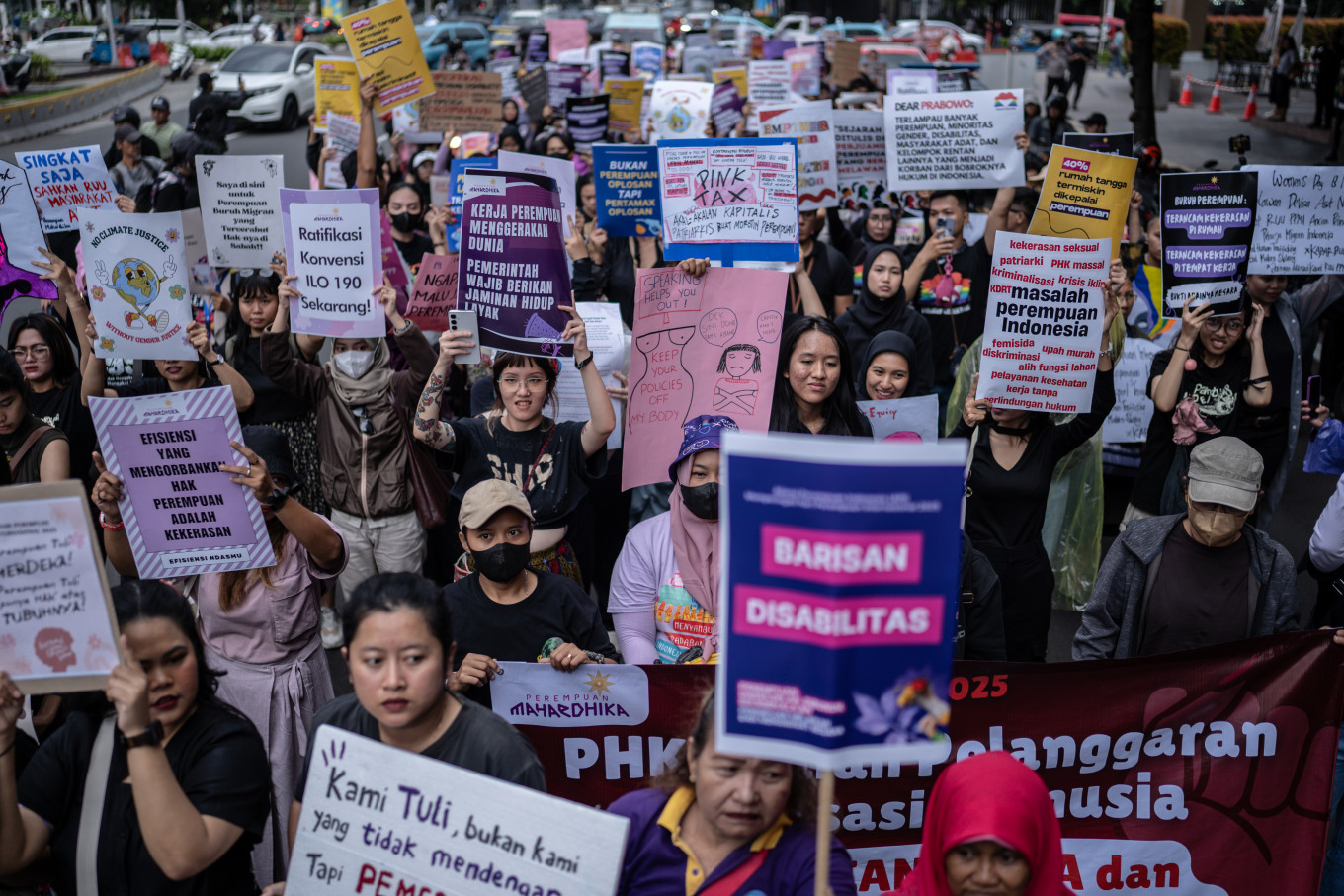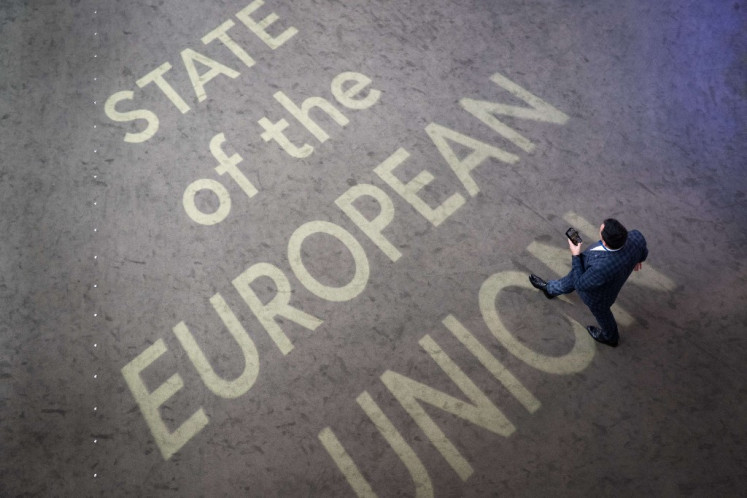Popular Reads
Top Results
Can't find what you're looking for?
View all search resultsPopular Reads
Top Results
Can't find what you're looking for?
View all search resultsSocial justice, the key to shared prosperity
Decent work is more than making a living: it is a barometer of how well we are doing in society as a whole, including health, education, equality and responsible consumption and production.
Change text size
Gift Premium Articles
to Anyone
T
hirty years ago, 186 countries met in Copenhagen for the first Social Summit for Social Development. The gathering was the largest meeting of world leaders ever at the time. By the end of the summit, their agenda was clear: the challenges faced by our societies are global and so are the solutions.
In response, governments vowed to put people at the center of global development. They recognized that social justice must be the foundation for economic progress if progress is to be sustainable.
This means ensuring that people, regardless of gender, nationality, background or place of birth, have the right to live in dignity, with equal opportunities to work, thrive and succeed. Societies built on fairness work better, trust more and grow stronger.
The consensus of the summit became the cornerstone for the United Nations Sustainable Development Agenda and its 17 Sustainable Development Goals (SDGs). Since 2015, the SDGs have been the blueprint for achieving a socially just, peaceful and sustainable world. The deadline for their realization was set for 2030.
Since that first summit, our world has changed, in many ways for the better. A new ILO report, “The State of Social Justice”, shows that extreme poverty is down from 39 to 10 per cent of the global population. Child labor for under-14-year-olds has been cut in half and, for the first time in history, more than half the world has some form of social protection, such as a pension or unemployment insurance.
But despite decades of efforts, the report makes clear that major disparities remain. A person’s place of birth still determines more than half of their lifetime earnings. Globally, over 800 million people survive on less than US$3 a day. That is why achieving the 2030 SDG targets is in jeopardy. For example, for SDG 8 on decent work and economic growth, we lag well behind, having met only two thirds, or 66 percent, of the indicators.
If we wish to improve living conditions for everyone and achieve social justice, accelerating the SDGs is crucial. Decent work is a key thread that helps to tie the SDGs together, because decent work is more than making a living: it is a barometer of how well we are doing in society as a whole, including health, education, equality and responsible consumption and production.
When work is productive, paid fairly, safe, equitable and inclusive, freely chosen and with rights, we have social justice.
But decent work does not just “happen”. History shows that, without strong institutions, productivity gains do not translate into better lives.
Institutions strengthen basic human rights, such as the rights to education and to a healthy environment, and ensure equal opportunities, fair distribution and a voice for both workers and employers. Social dialogue is the most effective way to balance the interests of workers and employers and help make growth equitable.
Right now, our institutions are being tested. Three massive transitions are reshaping the world of work everywhere: the impact of a hotter planet and the move to a greener economy, the digital revolution and demographic change.
These transformations are creating new jobs and destroying old ones. They have the potential to bring fresh opportunities but they also risk deepening existing divides. How these changes will play out depends largely on the choices that societies make today.
In November, the second World Social Summit will be held in Doha. This global gathering will once again bring together government representatives, workers, employers and civil society, three and a half decades after the first summit. It represents a critical moment to turn past pledges into real change.
We must reaffirm the promise made in Copenhagen that social justice and inclusive economic development are everyone’s business and in everyone’s interest. But above all, we must take decisive action.
The ILO-led Global Coalition for Social Justice offers a platform to help move us in the right direction. Already, it brings together governments, employers’ and workers’ organizations, and other partners to accelerate action and cooperation toward achieving social justice and decent work for all.
If we succeed, we can help ensure that economic productivity and social progress are linked. Because in the end, social justice is not an impossible ideal. It is the only route forward to a sustainable future for all of us.
***
The writer is director of the Research Department at the International Labour Organization (ILO).











